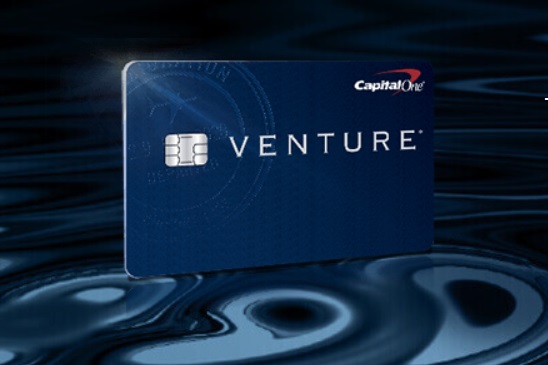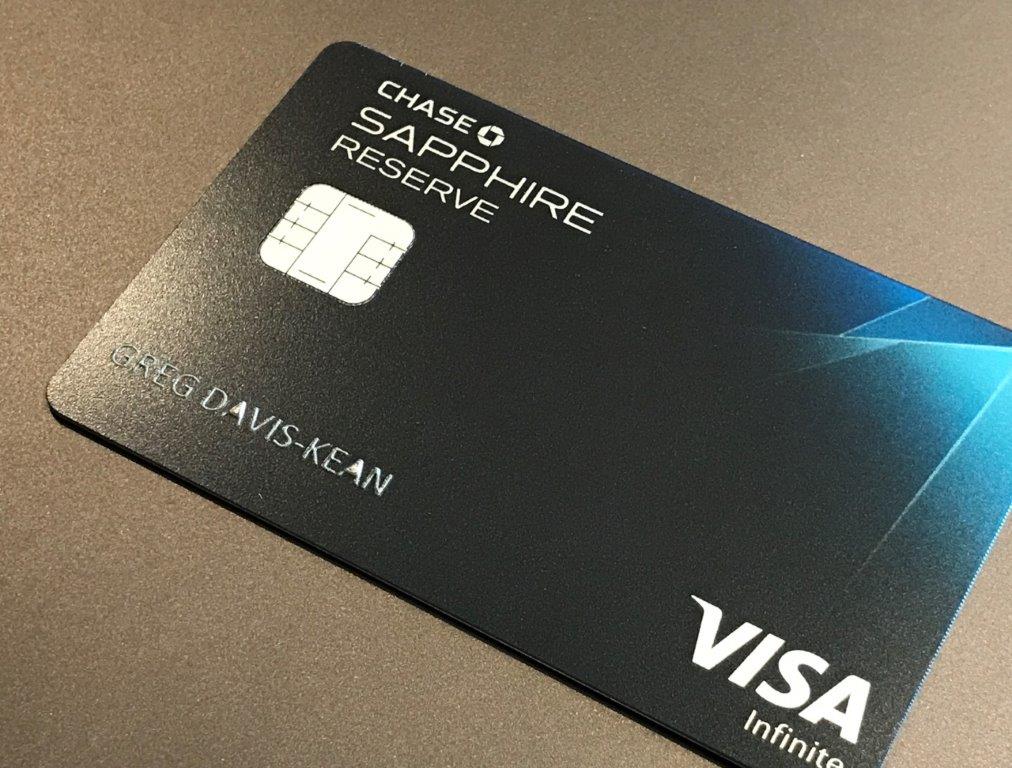If for some reason you could only have one credit card, Capital One’s Venture card would be a solid choice. But is it the best choice for everyone? Lately I’ve been wondering whether it would be my choice…
Capital One’s recent transfer bonus to Air France has me thinking more about the Venture card (and it’s business twin: Spark Miles for Business). The ability to earn 2 “miles” per dollar everywhere puts the Venture card on nearly equal footing with most 2% cash back cards. It falls short of the value of those cards in two ways: it has an annual fee (several 2% cash back cards are fee free); and to get full value you must use the rewards only towards travel. On the other hand, most 2% cards have foreign transaction fees and do not offer much in the way of travel protections. The Venture card, meanwhile, has no foreign transaction fees and it offers travel accident insurance, car rental collision damage waiver, and up to $120 credit for Global Entry or TSA Precheck. And, best of all, Capital One “miles” are transferable to airline miles. With well planned transfers it is possible to get much better value from your rewards.
Is it good enough to be my one and only?
There’s no question in my mind that the Capital One Venture card is a good choice for those who insist on keeping only one card. It offers a solid 2% back in travel rewards and provides the option to transfer to a number of airline miles, usually at a 2 to 1.5 ratio.
That’s all great, but could I do it? If for some reason I was limited to just one credit card, would Venture be it?
A few months ago, I set out to answer the question: “What is the best rewards credit card if you can only have one?” In that post I identified a number of good answers:
- Capital One Venture Rewards
- Chase Sapphire Reserve + Chase Freedom Unlimited (this was cheating since it is really two cards)
- Bank of America Premium Rewards with Platinum Honors Preferred Rewards
- US Bank Altitude Reserve
- Citi Double Cash + Uber Card
- CNB Crystal Visa Infinite Credit Card
Interestingly, if you eliminate the Chase Sapphire Reserve + Chase Freedom Unlimited combo (since that combo breaks the “one card” rule), the Venture then is the only one on the list to offer transferable points. And Capital One transfer options are pretty good. Here are some examples: To book Delta flights, you can transfer to Air France. For Star Alliance flights (e.g. United), you can transfer to Air Canada or Avianca. For OneWorld flights (AA, BA, Qantas, etc.) you can transfer to Cathay Pacific or Qantas. For AA or Royal Air Maroc flights, you can transfer to Etihad for great value.
So it seems that Venture is the answer to the question. If I could only have one card, it would be Venture.
Right?
Well, maybe. But, just because I think Venture is a great choice for many doesn’t mean that it’s great for me.
Missing transfer partners
If Venture was my one and only, there are two transfer partners that I’d particularly miss: Hyatt and Virgin Atlantic.
Hyatt

Chase Ultimate Rewards is the only program that offers point transfers to Hyatt. And, Hyatt happens to be the program that I transfer points to more than any other. I often find great uses for Hyatt points. A couple of notable examples are the Párisi Udvar Hotel Budapest and the Andaz Papagayo in Costa Rica.
If I didn’t have Chase Ultimate Rewards points, I could always buy Hyatt points if I needed them. Unfortunately, Hyatt usually charges 2.4 cents per point, which is more than I’d usually be willing to pay. On the other hand, Hyatt occasionally offers deals on purchased points. As I write this, for example, there’s an offer to get 40% more bonus points when you buy 10,000 or more through June 12. This brings the price per point down to only 1.7 cents each. Theoretically I could stock up on Hyatt points each time a promo like this rolls around. Would I though? Probably not. I don’t like to buy points unless I have a specific use in mind that will result in much better value than the purchase price.
Virgin Atlantic

If your home airport is a Delta hub, as is the case with me, Virgin Atlantic miles can be incredibly valuable (see: How to book Delta flights with Virgin Atlantic miles). And while every other transferable points program offers transfers to Virgin Atlantic, Capital One does not. Maybe they will offer Virgin Atlantic in the future, but they don’t today.
Could I buy miles instead? Virgin Atlantic charges a fixed £15 transaction fee (~$19 today) plus £15 for every 1,000 miles. So, the fewer miles you buy, the more expensive it is per mile due to the transaction fee. If you buy 100,000 miles, the total cost would be £1,515 (~$1,930). That’s approximately 1.93 cents (US) per mile. That’s not bad. I’m sure there are many times where I get significantly better than 2 cents per mile value.
What other cards would I consider?
I really don’t want to give up the ability to transfer points to airline programs. So, if I could only have one card, I’d want it to be one that earns transferable points. That means that neither the Bank of America Premium Rewards with Platinum Honors (2.62% everywhere), nor the US Bank Altitude Reserve (3X for travel and mobile wallet payments; 1.5 cents per point value) would fit the bill despite the fact that I think both are awesome choices for those who don’t care about transferable points.
That leaves me with these contenders:
- Chase Sapphire Reserve
- Pros: Strong earnings with 3X for travel & dining; great travel protections; transferable points (including to Hyatt); points worth 1.5 cents towards travel booked through the Chase portal; Priority Pass; etc.
- Cons: Weak rewards for spend outside of travel & dining purchases.
- Amex Gold Card
- Pros: Great earnings with 4X for dining, 4X US supermarkets (up to $25K annual spend, then 1X), and 3X for airline purchases. Tons of great airline transfer partners. Frequent transfer bonuses. Additional points earnings & savings through Amex Offers.
- Cons: Weak travel protections. It’s an Amex card and therefore not widely accepted, especially outside of the US.
- Amex Blue Business Plus
- Pros: No annual fee. Earn 2X everywhere, up to $50K spend per year. Tons of great airline transfer partners. Frequent transfer bonuses. Additional points earnings & savings through Amex Offers.
- Cons: Foreign transaction fees. No travel protections. It’s an Amex card and therefore not widely accepted, especially outside of the US.
- Citi Prestige
- Pros: Strong earnings with 5X for airfare, dining, and travel agencies, 3X hotels and cruise lines. Excellent travel protections. Priority Pass. 4th Night Free hotel bookings; etc.
- Cons: Weak rewards for spend outside of the bonus categories. Points worth only 1 cent each unless transferred to airline programs.
- Citi Premier
- Pros: Strong earnings with 3X for travel & gas and 2X for dining and entertainment. Points worth 1.25 cents each towards travel booked through the Citi portal.
- Cons: Weak rewards for spend outside of the bonus categories.
Out of the cards listed above, I would probably earn the most points with the Amex Gold Card. But it’s simply not practical to keep an Amex card as your only credit card. There are way too many places Amex isn’t accepted. I’ll disqualify the Amex Blue Business Plus for the same reason.
After disqualifying the Amex cards for lack of worldwide acceptance, the Citi Prestige Mastercard would likely be the next best point earning card based on my spending style. But the non-bonus earning on this card is awful. It only earns 1 point per dollar outside of its bonus categories, and those points are worth only 1 cent each.
The best of the lot, for me, is the Chase Sapphire Reserve. With this card I would earn a decent number of points thanks to it earning 3X for travel & dining. Outside of those categories, I’d only earn 1X but at least those points would be worth 1.5 cents each towards travel booked through the Chase portal. Plus I’d get excellent automatic travel protections (see: Ultra-Premium Credit Card Travel Insurance). And, best of all, I’d have the ability to transfer points to Hyatt (and more).
Final answer
If I could only have one credit card, I’d pick the Chase Sapphire Reserve. I’d get more benefits than with the Capital One Venture and I’d earn substantially more rewards for travel & dining purchases. On the other hand, outside of travel & dining I’d only earn 1 point per dollar. Where the Chase card offers great rewards for travel & dining, the Capital One card earns solid rewards everywhere. So it’s a close call. My preference for the Sapphire Reserve seems to come down mostly to my desire to keep Hyatt and (to a lesser extent) Virgin Atlantic as transfer options.
Who cares?
I’m not really constrained to one and only one card, so why am I writing about this?
Over the years blogging as Frequent Miler, I’ve been surprised by the number of times people have asked me for my recommendation for the one best travel rewards card. It seems that many people are not interested in carrying more than one. Now that Capital One offers point transfers to airline miles, my answer to the “one and only one” best card question is usually: Capital One Venture. Regardless of your spend pattern, you’ll earn solid rewards everywhere. And if you’re interested in booking higher value award flights, transferring to airline partners is an option too.
The point of this post was to question the Venture answer. If I forced myself to keep only one card, would I be happy with the Venture? The answer is that the Venture card would be a good choice for me, but maybe not the best. Given the current lineup of rewards cards available today, I would pick the Chase Sapphire Reserve. How about you?






![Hyatt goes next level with Mr & Mrs Smith [Integration “early 2024”!] a heart shaped sign over a house overlooking a body of water](https://frequentmiler.com/wp-content/uploads/2023/05/Mr-and-Mrs-Smith-and-Hyatt-218x150.jpg)
I would probably add that Chase’s shopping portal is quite strong. When I go to cashbackmonitor to see which portal I should choose for a purchase I’m going to make, Chase is routinely a strong choice, unless an airline is doing a 500+ mile bonus for some minimum spend. The Chase shopping portal greatly improves on the 1x normal shopping rate.
That being said, the recent ebates partnership with Amex Membership Rewards is probably every bit as strong with an easy app.
The tipping point for me is the CSR’s strong travel protections (rent a car and it pays big time, as super cover is expensive), transfers to United, BA, Virgin Atlantic, Southwest and Hyatt, and the $300 travel credit.
[…] On my mind (Venture only? edition) […]
This is one of my favorite questions to think about.
I’d choose the Alaska Airlines Visa.
The main reason being that I earn around 30k Alaska miles a year and buying more miles through my credit card purchases combines with those miles I’m going to earn anyway.
This means I get to redeem flights much more frequently.
Also, Bank of America cards can be programed with a PIN for those ticket machines in Europe that typically don’t accept American credit cards.
Just have to remember and set up the PIN in online banking and make some purchases at stores before needing to use it in a ticket machine.
I have a friend who is quite wealthy and values simplicity with his one and only card being the Citi Costco. He checks and pays his balance online daily. He has plenty of organic monthly spending. I’ve tried to explain how much value he could get for travel by cherry picking the best 3 or 4 cards and their enormous sign up bonuses over the next couple of years. I showed him you can be earning 10 to 30 points per dollar during the min spend toward the better bonuses. The thought of what I’d be giving up by limiting myself to just one card just from the bonus opportunities lost is staggering.
Even a Citi DoubleCash would massively improve their return
Another consideration is that Cap1 pulls from all 3 credit agencies, which is annoying. Sadly, they aren’t MS-tolerant anymore, so I don’t bother. Spark is a good card when you can take advantage of their $500/$1000/$2000 cash signup bonuses (and you can have multiples at the same time). Plus they’ll waive the annual fee if you put meaningful spend on it (wasn’t a problem when they cared-not about MS).
I find Amex is accepted almost everywhere I travel these days – used to carry a Plat for lounge access, but will add the Gold as well for dining. My backup travel (and occasional-MS) card is Arrival Plus – that extra 5% rebate makes it the best card for my spend habits, plus they remain fairly MS-friendly.
Chase is a non-starter with their ridiculous 5/24 rule. Eff them.
Gold would be my vote for the Average Joe’s only card. Membership Rewards has the best overall rewards program and no other cards offer the ability to easily earn 100K points year after year with minimal effort. The one small downside is lack of Hyatt transfers, but I trade for Hyatt, so never an issue. Hyatt has so few properties in places I visit that I haven’t had a Hyatt redemption in years. Plus Amex is MS-tolerant, a critical consideration for those wanting to generate a meaningful amount of points. Also, rarely discussed is Amex often allows spend well-above the stated credit limit (typically up to 90% increase) without any hassle from Amex (just need to have good payment history with them and not be maxed out on other Amex cards). So a $10K limit is really $19K in reality.
FWIW, I don’t think Chase’s 5/24 rule would bother someone who only wants one card. This is a person that generally doesn’t want cards but is intrigued enough by travel rewards or cash back to at least get one card now.
I ran my numbers with the CSR and USAA Limitless. Limitless comes out ahead easily in terms of earning.
Combined with the Venture One no annual fee card $900 hotel GC strategy….(HT Nick) u got a winner. I’ve bought five Marriott $900 GC with points transferred from venture to Ventureone. Woo hoo
Tell me more please
Yes, if you are lucky enough to have access to that old promotion then Venture is a no-brainer. For others, this is the post Sam is referring to: https://frequentmiler.com/the-best-hotel-credit-card-ever/
Instead of going along with the idea of holding just one card, you should write an evergreen post to show the one-carders which explains how (responsibly) holding multiple cards can improve a credit profile and buffer the impact of temporary blips like a high balance one month or unexpected AA from their one and only bank. Point out that holding only one card is risky, putting all their eggs in one basket.
A lot of business owners (conventional ones) I’ve talked with have a card or two personally and one for the biz – once I point out that losing access to that card for a month puts the entire business in jeopardy they usually realize they at least need a backup card and/or bank.
Good idea!
Totally agree. But it’s even more important for those starting out in the credit world, or those with a low credit score. It’s perverse to think having multiple cards makes you a better credit risk in the eyes of credit agencies – and it’s something many (probably the vast majority) people don’t understand.
This was a fun read. Now I want to see what Nick’s answer would be as well.
Thanks. I’m sure that Nick will at least weigh in on Friday when we do our Facebook Live debate.
Like those debates. Keep them coming. You both know your stuff and aren’t shamelessly pimping whatever card is offering the best affiliate bonus-du-jour.
I surely will weigh in on Friday. And I’ll tell you why Greg’s answer is wrong for him and what I think the right answer is for those who insist on keeping 1 card. See ya Friday!
@Greg- With Capitol Transfer bonus isn’t 1.8 miles per non bonus dollar spent pretty good compared to 1 Ultimate reward pint earned on the Reserve? Or is 2.625 cash back better?
Thanks
Yes, even without the transfer bonus 1.5 miles per dollar is better than the Reserve for non bonus spend. Whether or not 2.62% cash back is better depends on how much you’re willing to buy miles for. By opting for Venture instead of 2.62% cash back, it’s like buying airline miles at 1.74 cents each (2.62 / 1.5). Personally, since I’m flush with many airline miles and transferable points, I would pick 2.62%.